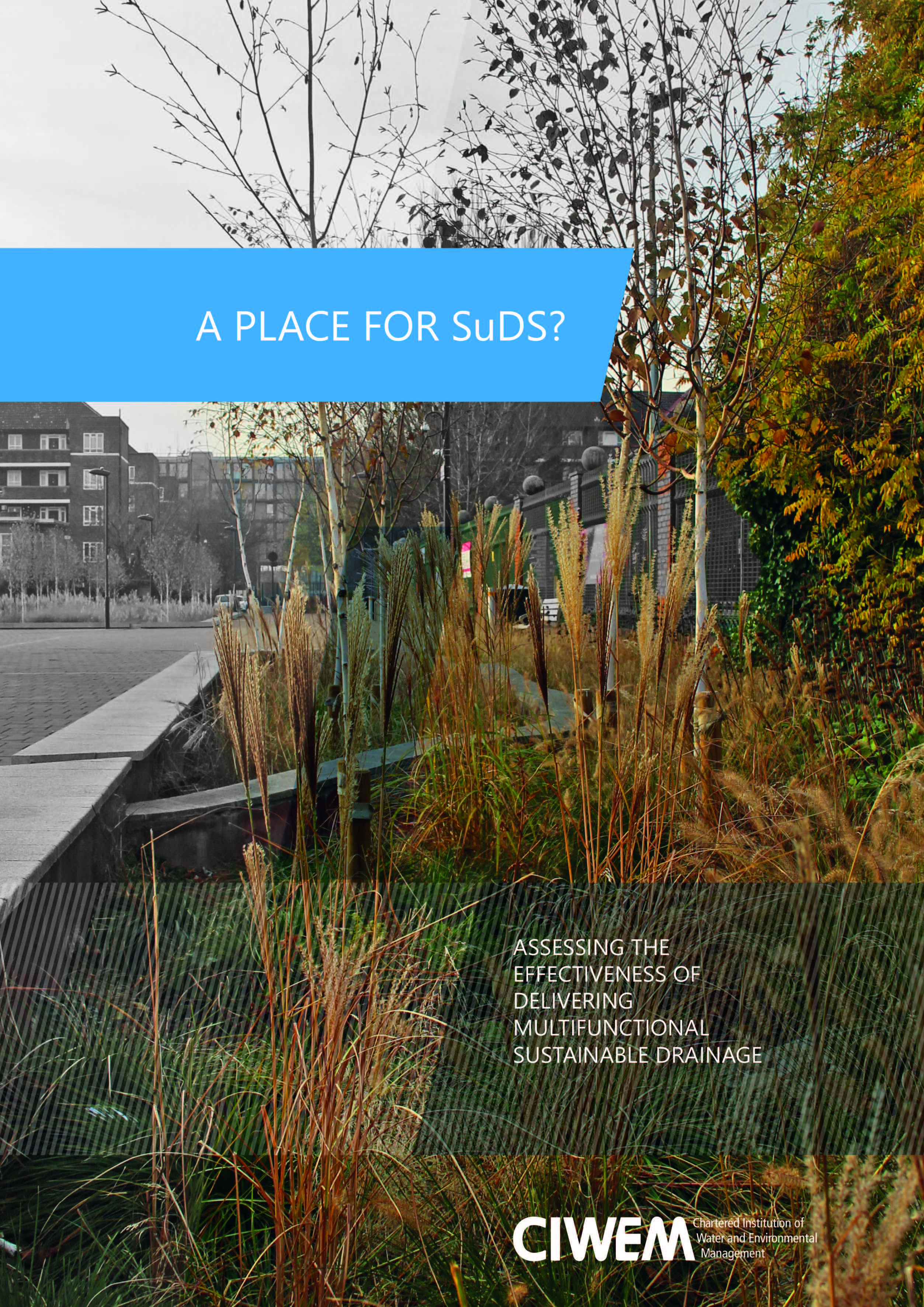The IES is pleased to support a new report on sustainable drainage systems (SuDS) published earlier this month by the Chartered Institution of Water and Environmental Management (CIWEM).
 SuDS are drainage solutions which aim to reduce the likelihood of surface water flooding on a development. As the land is increasingly built upon, hard substances like asphalt replace porous vegetation, resulting in standing water following heavy rains. SuDS aim to replicate the function of the natural environment, allowing for rainwater to be drained away efficiently, and can also help improve water quality. Examples of SuDS include permeable concrete, rainwater harvesting systems, and green roofing. The additional green space SuDS can provide in and around developments can also have a range of other positive impacts on the communities that live there.
SuDS are drainage solutions which aim to reduce the likelihood of surface water flooding on a development. As the land is increasingly built upon, hard substances like asphalt replace porous vegetation, resulting in standing water following heavy rains. SuDS aim to replicate the function of the natural environment, allowing for rainwater to be drained away efficiently, and can also help improve water quality. Examples of SuDS include permeable concrete, rainwater harvesting systems, and green roofing. The additional green space SuDS can provide in and around developments can also have a range of other positive impacts on the communities that live there.
The report, launched in the House of Lords at an event hosted by Baroness Kate Parminter, presents evidence gathered from the Big SuDS Survey, which we distributed to our members in July last year. These questions collected information on existing SuDS systems from a variety of experts, uncovering their effectiveness, barriers against their implementation, and knowledge gaps in their cost-effectiveness.
The Government is currently reviewing the policy that requires SuDS to be included in new developments, and this report was created to inform this process.
An overview of the results presented in the report, as well as recommendations for areas the Government should address in the review, are in a blog on the CIWEM website.



